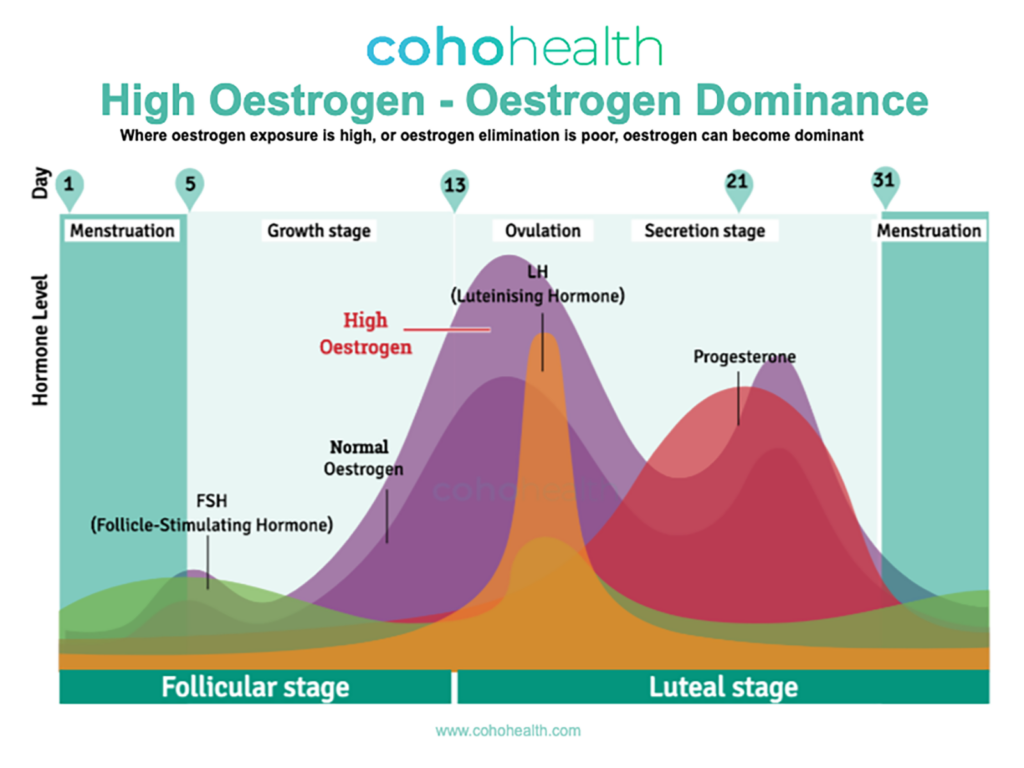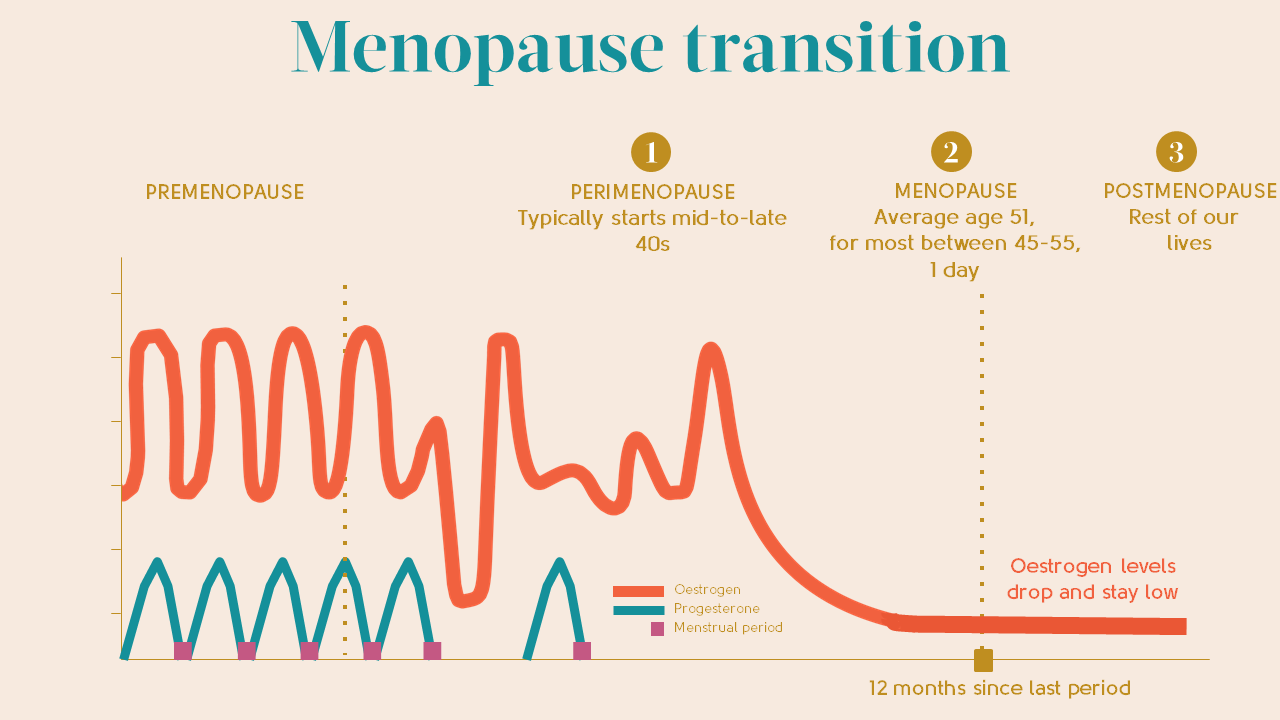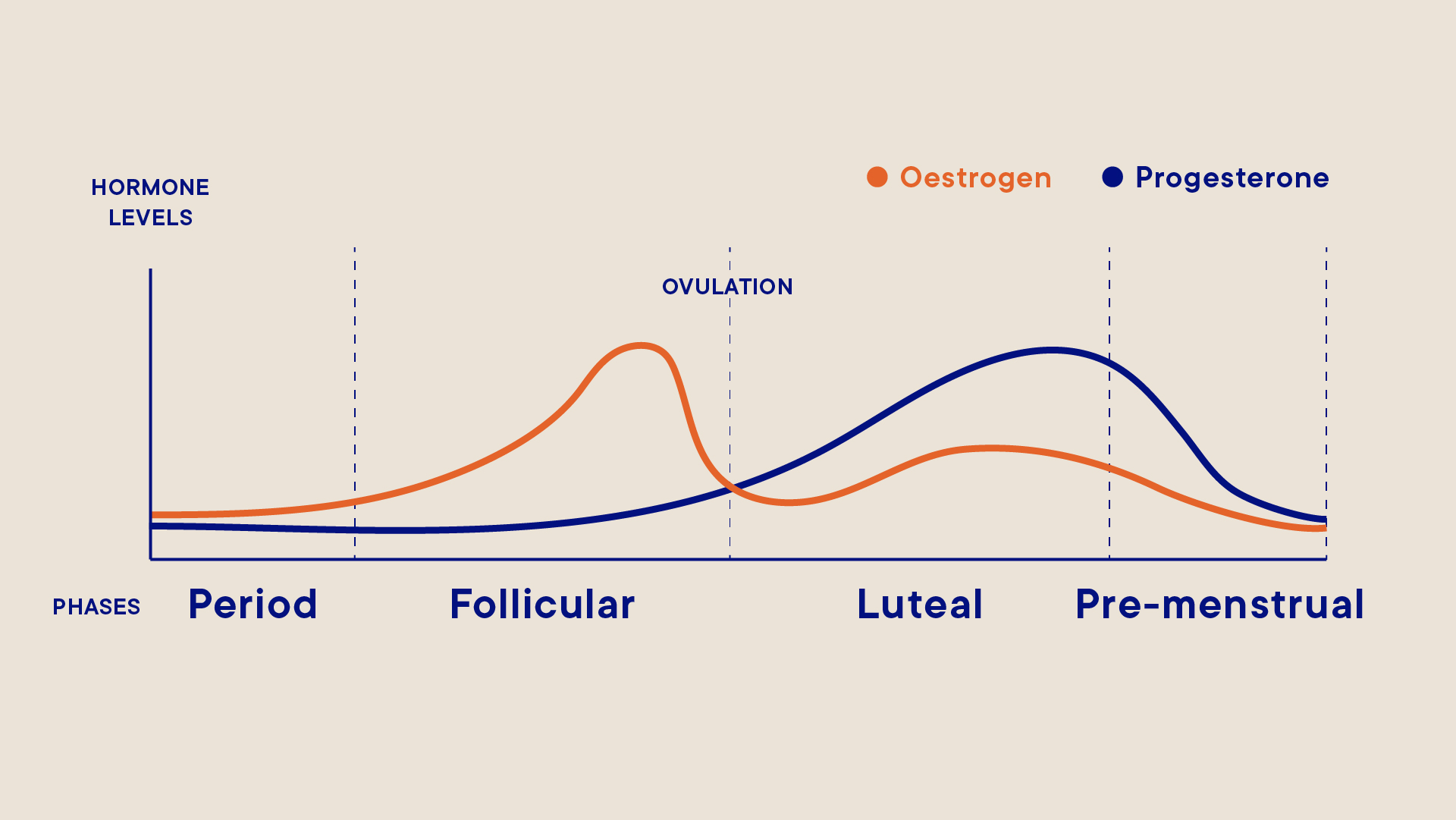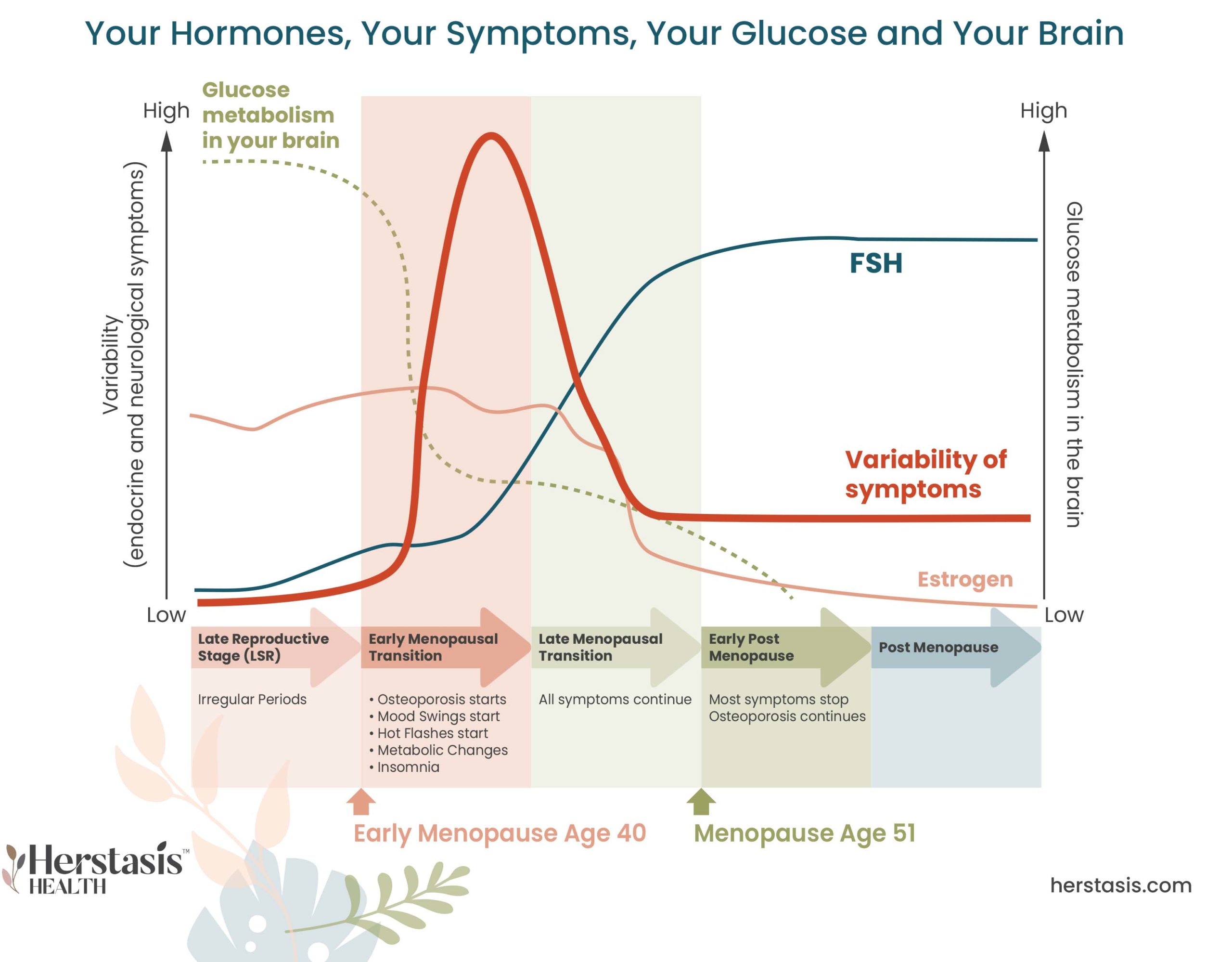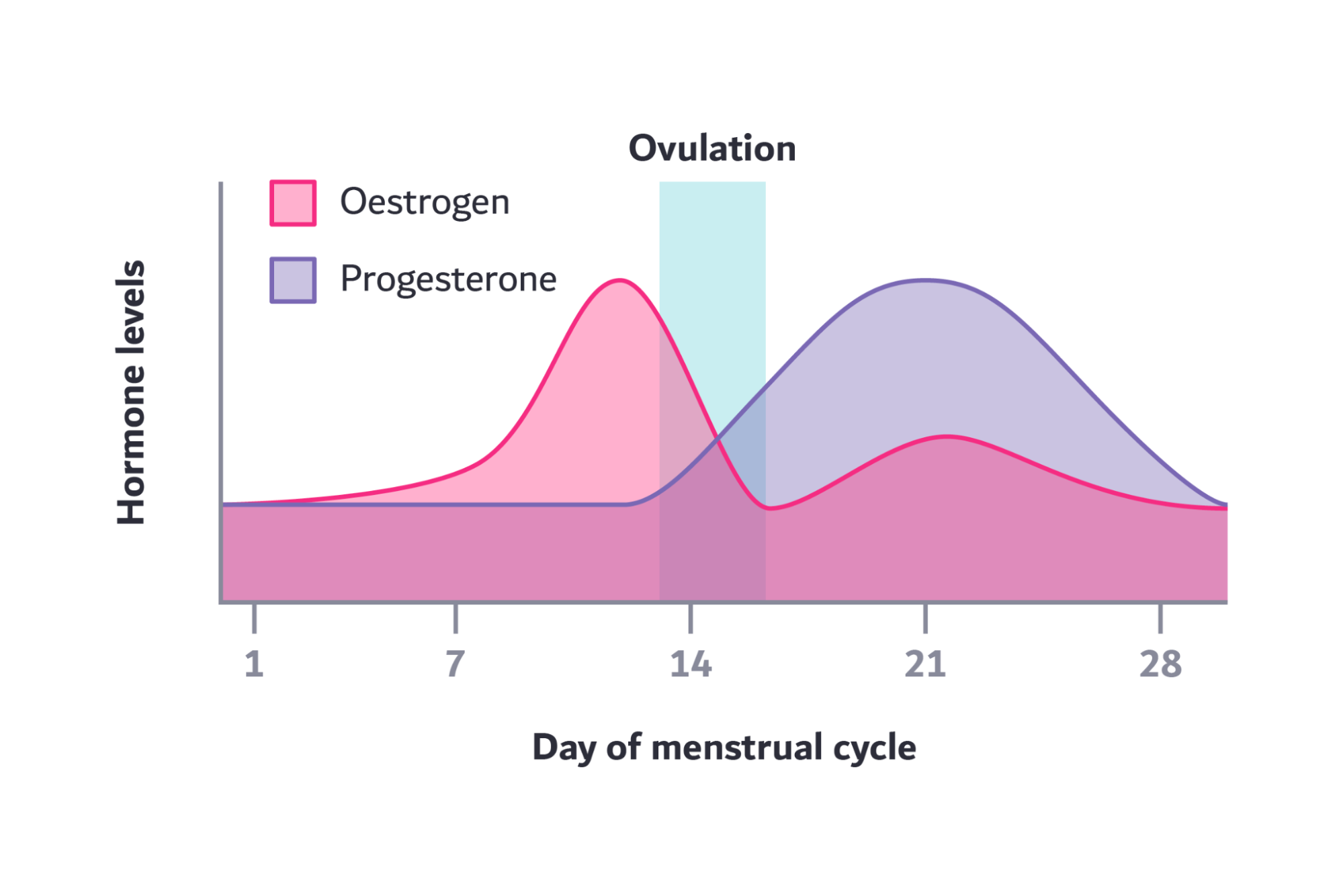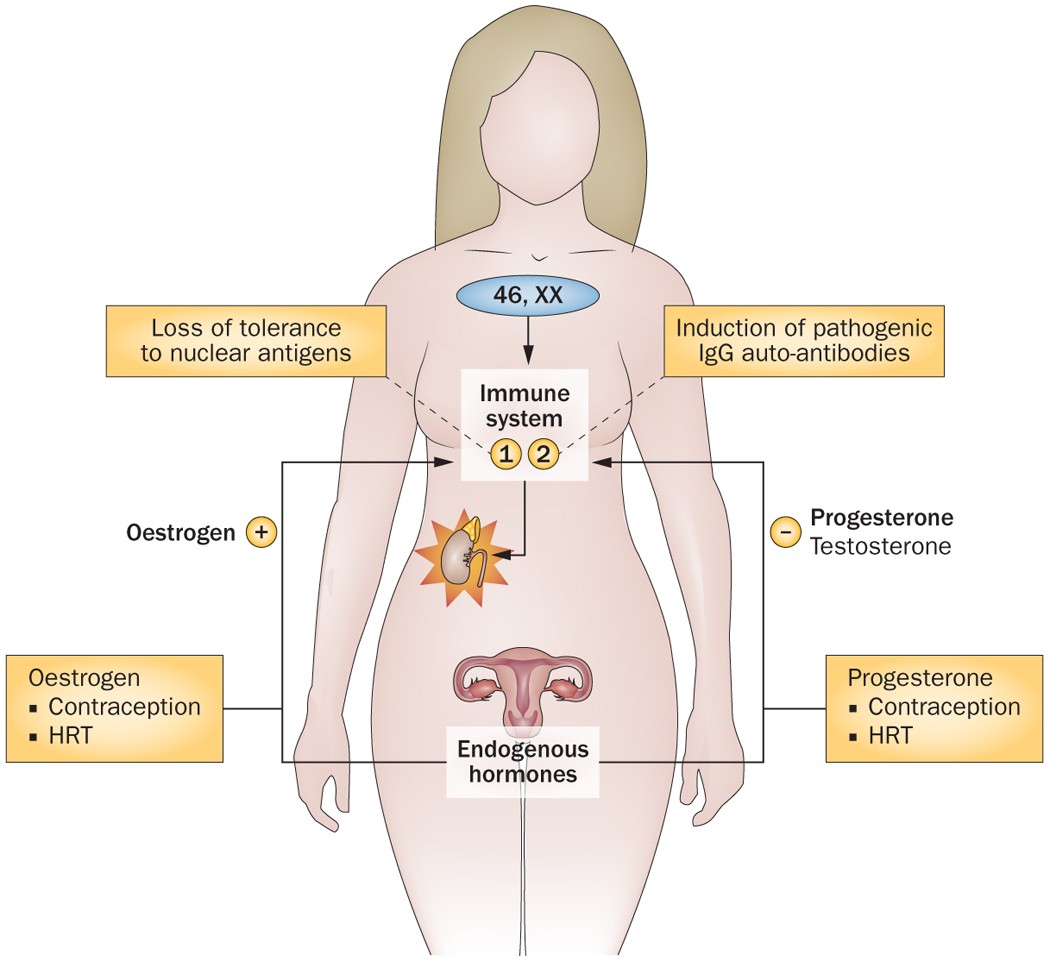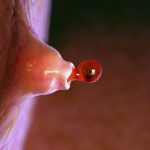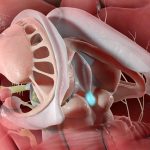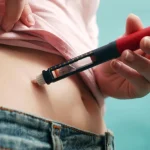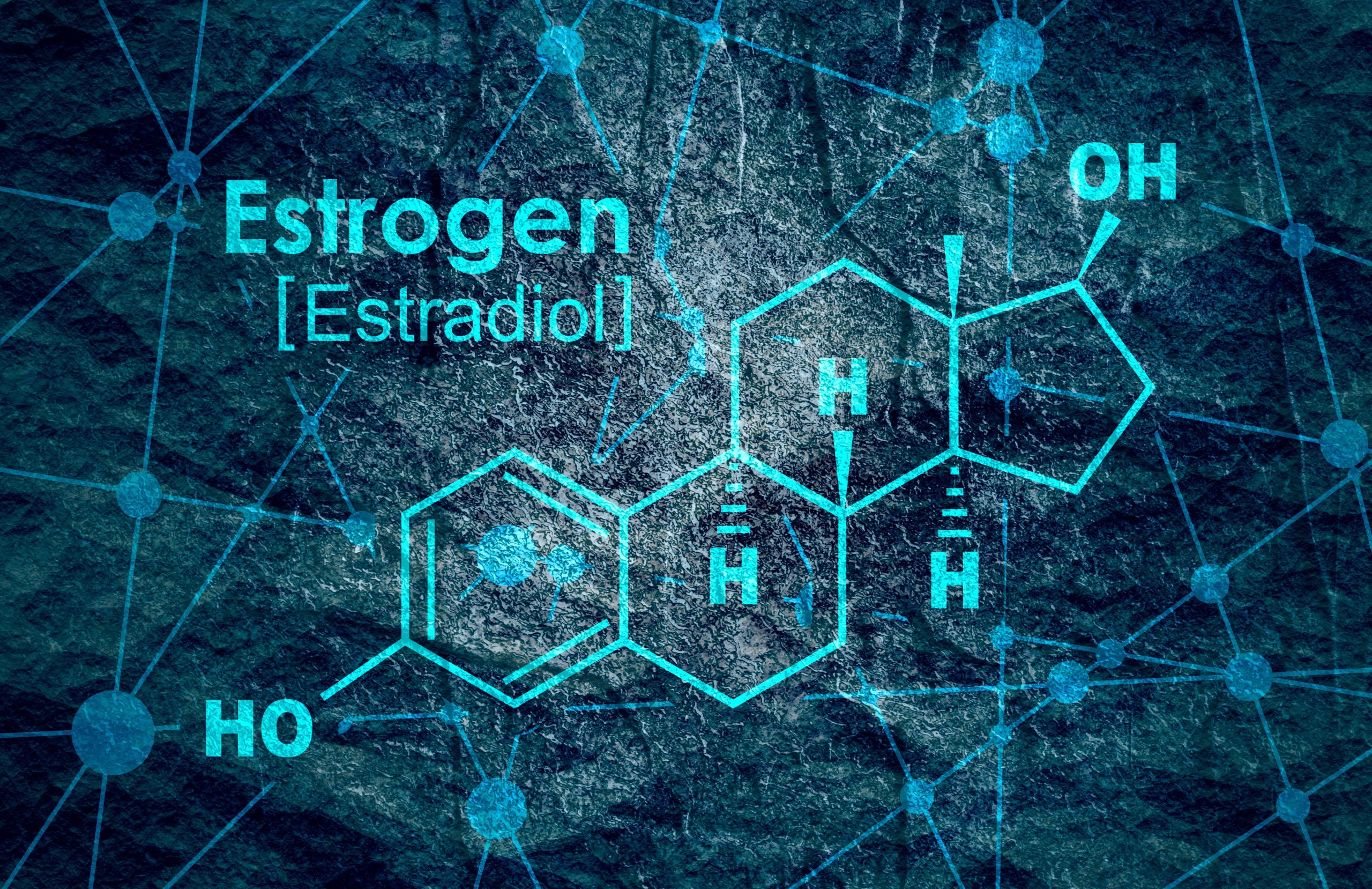
Key facts
- Oestrogen is one of the main female sex hormones. It is needed for puberty, the menstrual cycle, pregnancy, bone strength and other functions of the body.
- Oestrogen levels vary throughout the menstrual cycle and fall after menopause.
- Having too much oestrogen can increase your risk of blood clots and stroke. Having too little oestrogen can increase your risk of weak bones and menopause symptoms.
- Some medicines contain oestrogen, such as the combined oral contraceptive pill and some types of menopause treatment.
- High levels of oestrogen can increase your risk of breast cancer, however the added risk from taking medicines containing oestrogen is very small.
What is oestrogen?
Oestrogen is one of the main female sex hormones. While both females and males produce oestrogen, it plays a bigger role in the female body.
Oestrogen is part of your hormonal (endocrine) system and is mostly produced by the ovaries.
In the female body, oestrogen is needed for:
- puberty and breast development
- the menstrual cycle
- fertility and pregnancy
- bone strength
- maintaining normal cholesterol levels
Oestrogen also affects other parts of your body, such as your brain and heart. It can protect your skin from the effects of ageing and help with bladder control.
How do oestrogen levels change at different times?
Your oestrogen levels change according to where you are in your menstrual cycle and your stage of life. Oestrogen levels are highest in the middle of your cycle, and lowest during your period. At menopause, your oestrogen levels begin to fall.
There are 3 types of oestrogen in females, produced at different phases of life:
- Oestradiol is the main type produced before menopause, mostly by the ovaries.
- Oestriol is the main type produced during pregnancy, mostly by the placenta.
- Oestrone, produced by the adrenal glands and fatty tissue, is the main type produced after menopause.
What if my oestrogen levels are too high or too low?
Oestrogen affects many parts of your body, and can cause problems when it is off balance. Having too much oestrogen can lead to a small increase in your risk of some serious conditions such as blood clots, stroke and gallbladder inflammation. Having too little oestrogen can cause problems such as osteoporosis and symptoms of menopause.
Speak to your doctor if you are concerned about any of these conditions.
What are some common health conditions linked with oestrogen?
Some common health conditions linked to oestrogen include:
- Adenomyosis – when cells that normally line the inside of the uterus (womb) also grow inside its muscular walls. Because it needs oestrogen to grow, adenomyosis usually goes away after menopause.
- Fibroids – lumps of muscle tissue inside the wall of the uterus. Fibroids are stimulated to grow by hormones and tend to go away after menopause.
- Osteoporosis – a condition where your bones become fragile and more easily broken. Because oestrogen helps with bone strength, females are more at risk after menopause.
- Vaginal dryness – falling oestrogen levels at menopause can cause the vagina to become dry and thin, causing discomfort and sometimes leading to other problems.
Treatment is available for these conditions, so see your doctor if you are worried. You can also use healthdirect’s Symptom Checker to find out how to get help for your symptoms.
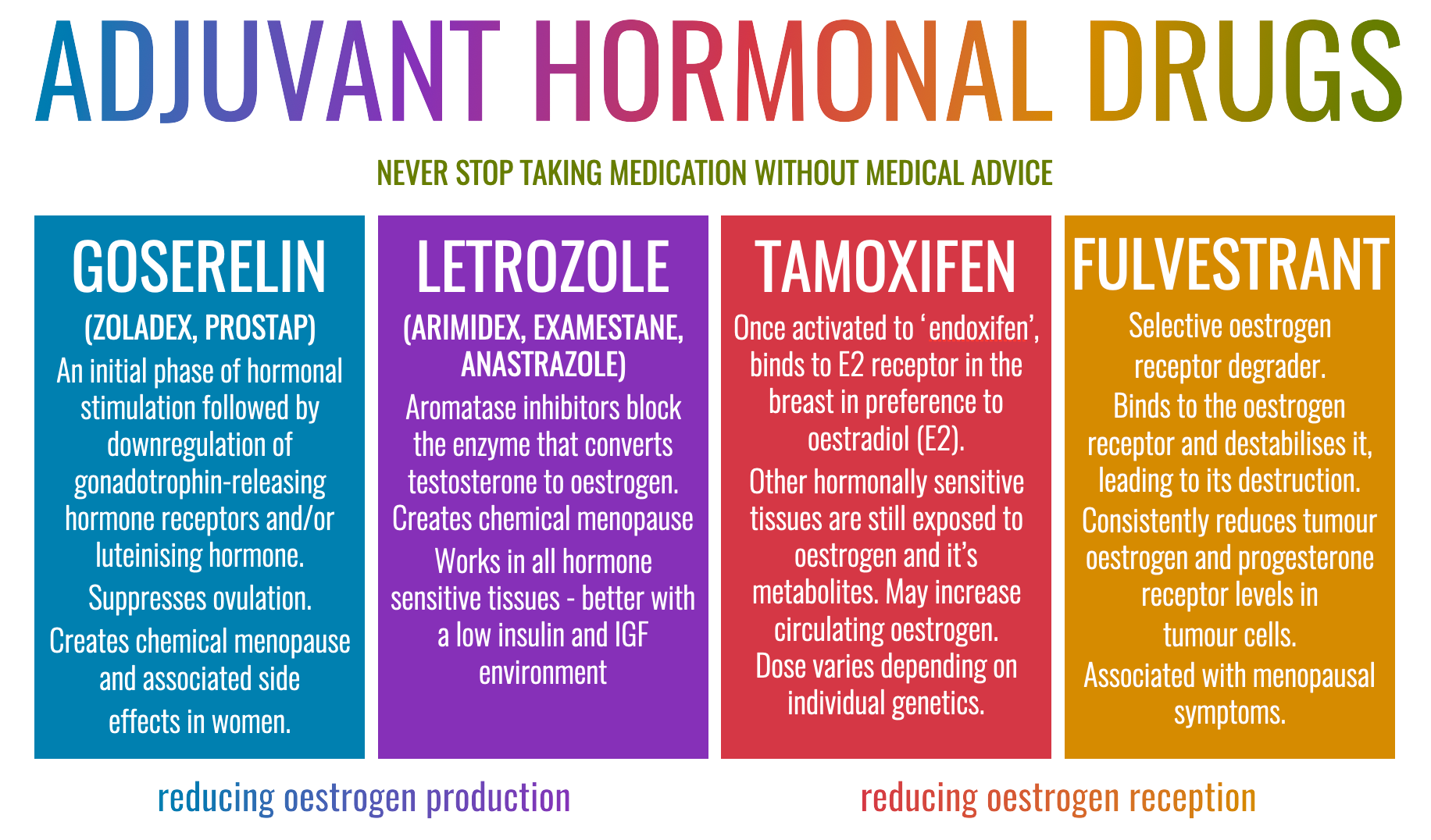
How is oestrogen used in medicines?
Oestrogen is used in some medicines, including some contraceptives and menopause medications.
In Australia, the combined oral contraceptive pill (‘the pill’) and the vaginal ring contain a synthetic version of oestrogen. These contraceptives work mainly by preventing the release of eggs from the ovaries.
If you are having problems with menopause symptoms, such as hot flushes and mood swings, you may choose to go on menopausal hormonal therapy (MHT). MHT includes oestrogen taken in the form of a tablet, gel or skin patch and can be very effective in easing menopausal symptoms. It’s also available as a cream, pessary or vaginal tablet to relieve vaginal dryness.
Some people experience early menopause (before age 45). This can be caused by a health condition or cancer treatment that affects your ovaries, or surgery to remove your ovaries. If you go through early menopause, your doctor may prescribe MHT or the contraceptive pill, so that you continue to get the protective effects of oestrogen, even when it’s no longer made by your ovaries.
Usually when you take a medicine containing oestrogen, you will also need to take a progestogen. This is a version of progesterone, another hormone also produced by the ovaries. High levels of oestrogen without a progestogen can cause dangerous changes to the lining of your uterus. If you’ve had your uterus removed (known as a hysterectomy), it is safe to take oestrogen by itself.
Does oestrogen cause breast cancer?
The causes of breast cancer are complex, involving many factors. However, it is known that oestrogen can help breast cancer cells grow.
Females who have been exposed to more oestrogen — for example, because they reached puberty early or went through menopause late, or because they have naturally high levels of oestrogen — have a higher risk of breast cancer. If you take a medicine that contains both oestrogen and progestogen, such as MHT or the combined contraceptive pill, this can lead to an increased risk of breast cancer too.
However, there are a few important things to know:
- Breast cancer is common and affects about 1 in 8 females. The added risk from taking MHT or the pill is very small.
- To put it in perspective, for every 1000 females using MHT each year, there’s one extra case of breast cancer.
- The risk increases the longer you take the medicine and goes down after you stop taking it.
- Medicines for MHT can also lower your risk of other health problems and relieve symptoms of menopause.
You can talk to your doctor if you are concerned about your risk of breast cancer.
